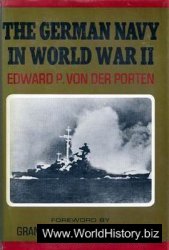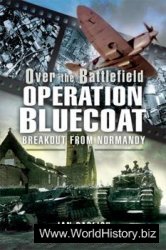A military coup led by Mohammed Daud ushered in a republic in 1973. Daud was named president and premier of the new republic. He declared the 1964 constitution invalid and replaced it with a new constitution in 1977 that supported the presidential form of government in a one-party state. Daud's control over the
1986 (Oct. 15) Soviets begin withdrawal from Afghanistan.
1987 (Nov.) Afghanistan adopts new constitution that increases presidential power.
1989 (Feb. 15) Soviet Union completes its troop withdrawal from Afghanistan.
1992 (Apr.) Guerrilla forces capture Kabul; (June) Burhanuddin Rabbani assumes
Presidency.
1996 Taliban captures Kabul; strict Islamic rule is enforced; former president Najibullah is executed.
1997 United Nations asks other nations to stop interfering with Afghan civil war.
1998 General Abdul Rashid Dostam returns and forms power base in north; Burhanuddin Rabbani retains presidency.
1998 (Jan. 30) U. S. State Department issues annual human rights report that condemns
Repressive laws of Taliban government.
1998 (May 3) U. N.-sponsored peace talks between Taliban militia and Northern
Alliance break down in Islamabad, Pakistan, after only one week.
1998 (Aug. 7) Terrorists bomb U. S. embassies in Kenya and Tanzania. U. S. government
Claims that these bombings were planned by Osama bin Laden in Afghanistan, where bin Laden had established terrorist training camps.
1998 (Aug. 12) Taliban forces drive Northern Alliance forces from several important
Towns on Uzbekistan border.
(continued)
Army weakened, and in April, 1978, another military revolt overthrew his government. Daud was killed.
The days of April 27-28,1978, known as the Great Saur Revolution, established the Democratic Republic of Afghanistan and nullified the 1977 constitution. The People's Democratic Party of Afghanistan (PDPA) became the only legal party. Nur Mohammed Taraki became president of the council and premier. The Soviet Union extended its support, and a treaty of friendship was signed in December, 1978.
The Muslim tribal communities were not happy with the new government, and they soon revolted. The Soviet Union airlifted guns and military equipment into the capital. Infighting also occurred in the PDPA. In September, 1979, Taraki was ousted from power and replaced by Hafizullah Amin.
At that time the Soviet Union intervened when it became obvious that the new ruler was no more effective than the last. Thirty thousand Soviet troops invaded Afghanistan in December, 1979.
Afghanistan Time Line (continued)
1998 (Aug. 20) U. S. ships in the Arabian Sea fire missiles at suspected al-Qaeda
Training camps south of Kabul.
1998 (Sept. 22) Iran places more than 200,000 troops along border with Afghanistan in move seen as retaliation against Taliban massacre of nine Iranians in Afghan city in August.
1999 (Mar. 14) Leaders of Afghan factions agree in principle to plan for coalition government that will end civil war.
1999 (June) Taliban government closes all private schools for women.
2001 (Mar.) Taliban leader Mullah Mohammad Omar announces that the ancient
Buddha statues cut in rock in Bamiyan will be destroyed.
2001 (Sept. 9) Ahmad Shah Masoud, leader of the opposition Northern Alliance in
Afghanistan, is killed by suicide bombers.
2001 (Sept. 11) Terrorists hijack planes in the United States and fly them into the World
Trade Center in New York and the Pentagon in Washington, D. C. The U. S. government maintains that the terrorists are agents of the al-Qaeda group based in Afghanistan.
2001 (Oct. 7) American and British forces begin air strikes on Taliban positions in
Afghanistan.
2001 (Nov. 12) Northern Alliance takes Kabul.
Amin was executed, and the Soviet Union gained control of the government.
Babrak Karmal was installed as president on December 27, 1979. Afghan resistance to Soviet domination was widespread. Eventually the Soviet troops numbered 115,000. Over five million Afghans left the country; three million sought refuge in Pakistan and two million fled to Iran.
The rebel guerrillas, known as mujaheddin, or "holy warriors," represented independent tribes with centuries of antagonism toward one another. The main strength of the guerrilla fighters was their knowledge of the countryside. The United States and China provided arms to the Afghan guerrilla forces through Pakistan to assist with their fight against the Soviet Union. However, guerrilla leadership and the power of the field commanders grew more quickly than the power of the political leaders.
By 1986 the Soviets desired to withdraw from the country. At
2001 (Nov. 27) Representatives from Afghanistan meet in Bonn, Germany, under the direction of the United Nations to establish the framework for a new government.
2002 (Mar. 31) Special independent commission of the United Nations announces that 1,501 delegates from tribal and regional groups have been elected to the coming Loya Jirga—the traditional grand council to select new national leadership.
2002 (June 10) Former Afghan king Zaher Shah announces that he will not be a
Candidate for president.
2002 (June 13) Loya Jirga announces that Hamid Karzai has been elected president.
2002 (July 6) Afghan vice president Abdul Qadir is assassinated.
2002 (Sept. 5) Two assassins attempt to kill President Hamid Karzai.
2002 (Sept. 20) Taliban and al-Qaeda forces launch an attack on a U. S. Special
Operations base in eastern Afghanistan with rockets and small arms.
2002 (Oct.) Up to 2,000 U. S. troops from the 82d Army Airborne begin a large-scale
Operation searching for Taliban and al-Qaeda fighters in Paktia province in southeastern Afghanistan.
2002 (Dec.) Turkey turns command of the peace-keeping International Security
Assistance Force in Afghanistan over to Germany and the Netherlands.
This time the question of leadership within the country was unanswered. Karmal's faction of the PDPA, Parcham (flag), struggled for control of the party against the Khalq (masses). The Khalq had been the dominant force before the Great Saur Revolution. A new constitution was introduced in 1985 to ensure Parcham's grip on the party.




 World History
World History









